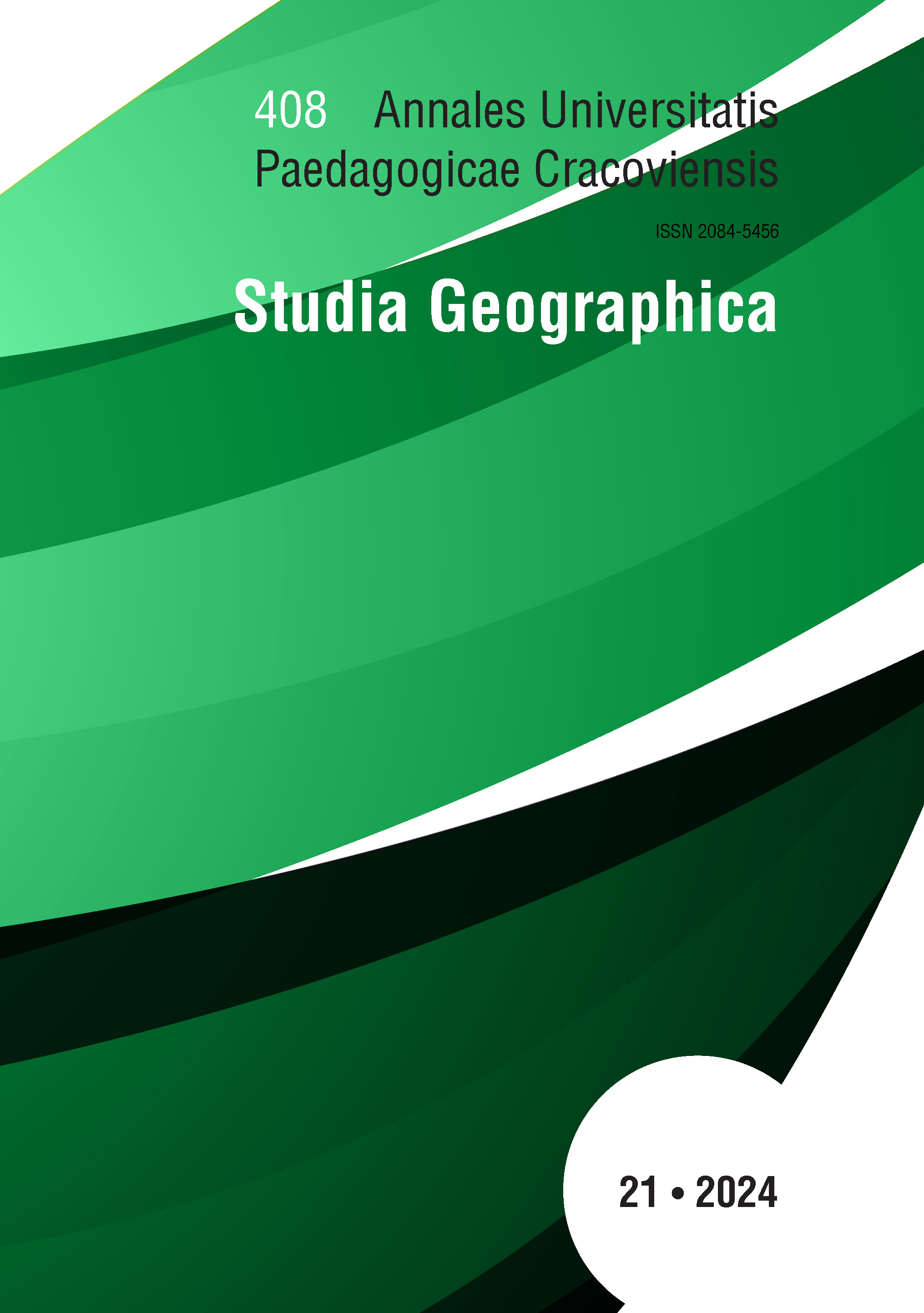The impact of movies and TV series on tourists’ preference for choosing Turkey as a travel destination
DOI:
https://doi.org/10.24917/20845456.21.8Keywords:
culture, film tourism, tourism, TurkeyAbstract
Tourism in Turkey is one of the key sectors of the country’s economy. Turkey is an attractive tourist destination for many reasons, including its rich culture, historical monuments, and diverse natural landscapes. This study is both empirical and descriptive, aiming to analyze the impact of Turkish movies and TV series on tourists’ preferences when choosing Turkey as a travel destination. To test the research thesis – Watching Turkish movies and TV series influences tourists’ preferences for choosing Turkey as a travel destination – an online survey was conducted among individuals who watch Turkish films or series. The results indicate that 94.3% of respondents confirmed that watching Turkish films and TV series increased their interest in Turkey. Notably, 64.1% of those surveyed had no prior interest in the country before they began watching Turkish productions.
References
Akdu, U., Akin, M. (2016). Film ve Dizilerin Destinasyon Tercihine Etkileri. The Journal of International Social Research, 9(45), 1042–1052.
Bargieł, K. (2012). Rynek turystyczny Turcji. Kraków: Akademia Wychowania Fizycznego im. Bronisława Czecha.
Beeton, S. (2005). Understanding Film-Induced Tourism, Tourism Analysis. 11, 181–18.
Bieńkowska-Gołasa, W., Gołasa, P. (2021). Turystyka filmowa jako element promocji regionu. Turystyka i Rozwój Regionalny, 15, 5–14.
Busby, G., Ergul, M., Eng, J. (2013). Film Tourism and the Lead Actor: An Exploratory Study of the Influenceon Destination Image and Branding. Anatolia – An International Journal of Tourism and Hospitality Research, 24(3), 395–404.
Connell, J., Meyer, D. (2009). Balamory Revisited: An Evaluation of the Screen Tourism Destination-Tourist Nexus. Tourism Management, 30(2), 194–207.
Niemiec, J. (2017). Wpływ decyzji politycznych na przebieg kryzysu gospodarczego w Turcji. Jagielloński Przegląd Bezpieczeństwa, 2(3), 52–78.
Shaw, S.J., Shaw, E.K. (2012). Historia Imperium Osmańskiego i Republiki Tureckiej, t. 2: 1808–1975. Warszawa: Dialog.
Stasiak, A. (2009). Turystyka literacka i filmowa. W: K. Buczkowska, A.M. von Rohrscheidt (red.), Współczesne formy turystyki kulturowej. Poznań: Akademia Wychowania Fizycznego im. Eugeniusza Piaseckiego w Poznaniu, 223–265.
Sztumski, J. (1995). Wstęp do metod i technik badań społecznych. Katowice: Wydawnictwo Śląskie.
Tucki, A. (2016). Turystyka filmowa – wybrana problematyka badawcza. Barometr Regionalny, 2(14), 141–146.
Wasilewski, K. (2015). Turecki sen o Europie – tożsamość zachodnia i jej wpływ na politykę zagraniczną Republiki Turcji. Warszawa: Uniwersytet Warszawski.
Yilmaz, H., Yolal, M. (2008). Film Turizmi: Destinasyonların Pazarlanmasında Filmlerin Rolü. Anadolu Üniversitesi Sosyal Bilimler Dergisi, 1(8), 175–192.
Zakrzewska, J. (2010). Potencjał kulturowy Turcji a preferencje turystyczne Polaków i dostępność kulturowej oferty turystycznej. Turystyka Kulturowa, 12, 17–34.
Downloads
Published
Issue
Section
License
Copyright (c) 2025 Annales Universitatis Paedagogicae Cracoviensis Studia Geographica

This work is licensed under a Creative Commons Attribution-NoDerivatives 4.0 International License.
The submission of a paper to be published is synonymous with an agreement to transfer the copyright free of charge from the author to the publisher. The author also agrees to permit the publisher to publish the paper in printed form, open access online form, digital library form and other digital platforms with which the publisher has or will have a publishing agreement. Furthermore, the author agrees to not limit the number of copies that may be printed or issued by the publisher. In the case of co-authored papers, it is assumed that the corresponding author is authorized to represent the remaining co-authors in this respect. Authors are requested to sign a copyright declaration.

